Post details

This content type is full of IndieWeb post types, which are all content types which allow me to take greater ownership of my own data. These are likely unrelated to my blog posts. You can find a better breakdown by actual post kind below:

Between and I took 3038 steps.
A day of national mourning is upon us - our kettle stopped working this afternoon so we've had a whole half day with no tea 💔 (cries in British)
Welcome back to Break, a Fallthrough aftershow! In this episode, Nick Gerace sticks around for Break. The panel compare audio engineering backgrounds, discuss AI-powered podcast workflows, and Nick...
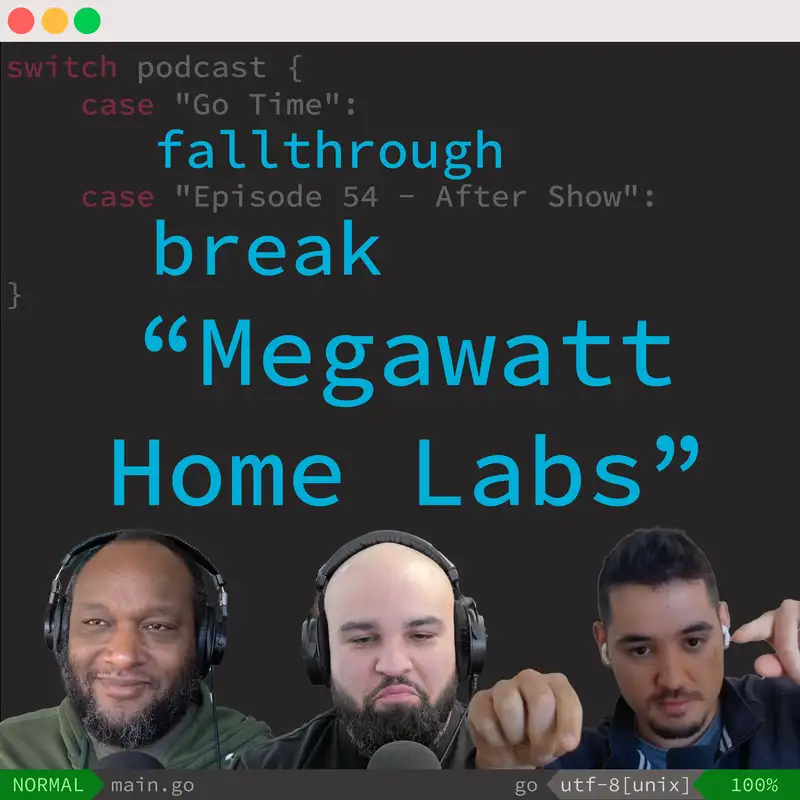
Did you send yourself a fake letter from the FBI? Is this life real? Are you taking a deep breath? Are you who you think you are? Are you letting go? Are you being a good girl? https://asterolsen.bigcartel.com/product/performance-review
The Go team have been on fire lately. Basically every release lately has dealt with like... actual problems I run into on a regular basis. Once again excited for a language release when 1.26 drops.
Nick Gerace, Engineering Manager at System Initiative, joins Kris and Matt to explore what infrastructure management looks like beyond Terraform. Nick walks us through how System Initiative differs...
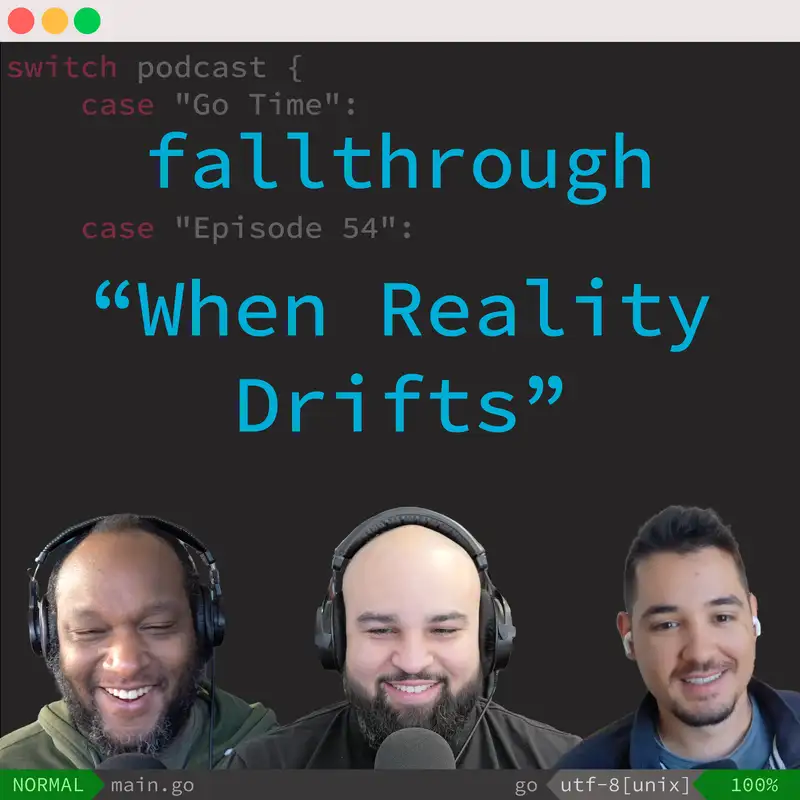
Between and I took 2485 steps.
“I hate complaining about tech” Oh so we’re just lying on the internet now?
Ugh. Found well-phrased GitHub issue exactly explaining my issue 🤩 …with a contributor reply 😍 …saying to ask in Discord 😭
Mat Ryer is back and he brought his impromptu musical abilities with him! We discuss Rob Pike vs thankful AI, Microsoft's GitHub monopoly (and what it means for open source), and Tom Tunguz' 12 predictions for 2026: agent-first design, the rise of vector databases, and are we about to pay more for AI than people?!
Between and I took 2197 steps.
Justin Searls quit social media by posting more. How, exactly, did he do that? By writing way too much Ruby code to cross-post his blog to all the social networks using an atom feed of his design. POSSE is an old idea: publish on your own site, syndicate elsewhere. That’s desirable, for sure, but not always easy to accomplish. POSSE Party is the new app Justin released so others can accomplish the same without all the work he went through.
My first week notes ever(https://niklas.fyi/2026/01/19/week-notes-26-3/)
This author has chosen to make their posts visible only to people who are signed in.
the only good outcome for JavaScript Projects as Corporations is to get scooped up by a major company, and if you're an adopter early on it's a crapshoot if you're going to be okay with who actually ends up scooping up the project + how they continue to maintain it https://astro.build/blog/joining-cloudflare/
This author has chosen to make their posts visible only to people who are signed in.
TIL iOS has hidden support for custom animated wallpapers and this is probably the coolest thing I’ve done to my iPhone in years
OK nevermind, THIS is the coolest thing I’ve ever done to my iPhone [contains quote post or other embedded content]
Don’t know why I ever doubted my autism diagnosis when a UI change made me freak out at 1 in the morning.
Between and I took 7671 steps.
If you funded a maintainer before they created their most successful package, you have a claim on it. The Law of Surprise is underutilized in open source.
Between and I took 11609 steps.
I can update my salary transparency page now! [contains quote post or other embedded content]
How do you feel about this promotion and benefit from a memecoin?
Yeah. Him and Huntley have now made tens of thousands and are denying it’s a scam. It’s really difficult to watch.
At @oxide.computer, we pride ourselves on terse performance reviews: we have exceeded expectations!

"It turns out having an established blog gives you a surprising amount of influence in a field"
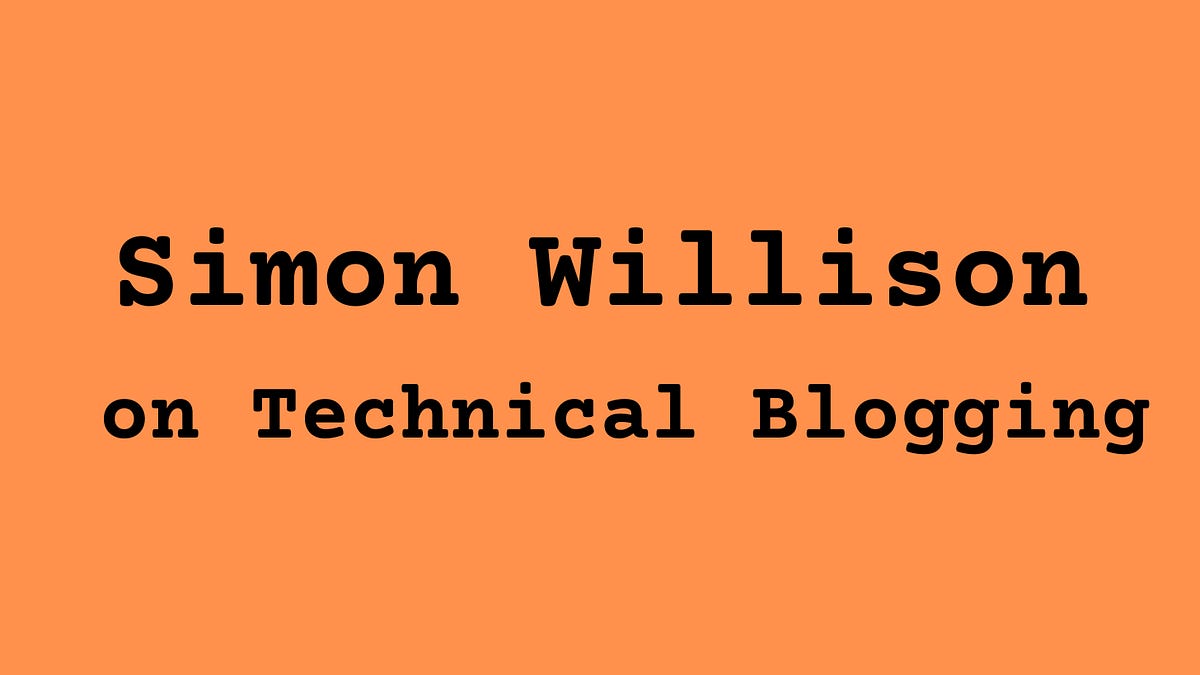
Between and I took 5369 steps.
This author has chosen to make their posts visible only to people who are signed in.
This author has chosen to make their posts visible only to people who are signed in.
We are halfway through the Writing for Developers book club through the @overcommitted.dev community and the writing motivation is strong 💪 - 10 blog posts folks wrote this week and got feedback on - Discussions every day and started some co-working sessions - A supportive community of developers
Between and I took 5824 steps.
++ to Andy! Andy designed Dependency Management Data and deps.fyi and really enjoyed the collaboration
I've also got a public review that may be of interest
Between and I took 5271 steps.
SummaryIn this episode, the hosts meet with Christina Martinez, a developer experience engineer from Resend, who shares insights on her creative process and current projects. She shares her delight in building silly software and how she's using that to learn in her current role.TakeawaysChristina is the creative mind behind the Gen Z Babel plugin.She also developed the Swift commits tool.Taking existing tutorials and adding a creative twist can make them more fun.Continuous development is important at all parts of your career.LinksChristina Martinez: https://christinacodes.devSilly Software Club: https://sillysoftware.clubResend: https://resend.com/Gen Z slang Babel plugin: https://www.instagram.com/reel/Cxvwz76vBus/ | https://github.com/christina-de-martinez/babel-plugin-glowup-vibesTaylor Swift themed commit linting tool: https://youtube.com/shorts/eOS5Q2I9LHM?si=LC8JVUKTkLgwKtDF | https://github.com/christina-de-martinez/swift-commitsCodeTV & Mux's Worst Video Player Competition: https://www.mux.com/blog/actual-worst-video-playerReact Miami: https://www.reactmiami.com/HostsOvercommitted: https://overcommitted.devBethany Janos: https://github.com/bethanyj28Brittany Ellich: https://brittanyellich.comEggyhead: https://github.com/eggyhead
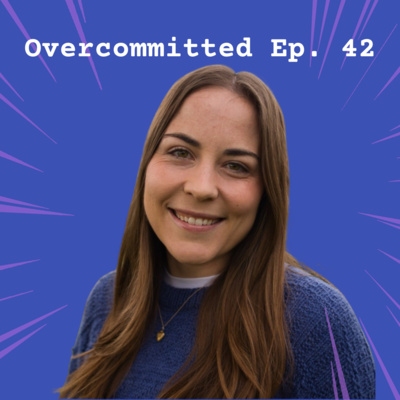
Everybody thinks 'https://' stands for 'hypertext transfer protocol secure' but it actually stands for 'head to this place, sucka' followed by a colon and two laser sounds
Between and I took 3865 steps.
Today was a good day, I think, for knitting together. Lolly the cat makes eye contact with the camera as she sits in Marty's lap. Marty is focused on hanging stitches on his knitting machine. Marty …
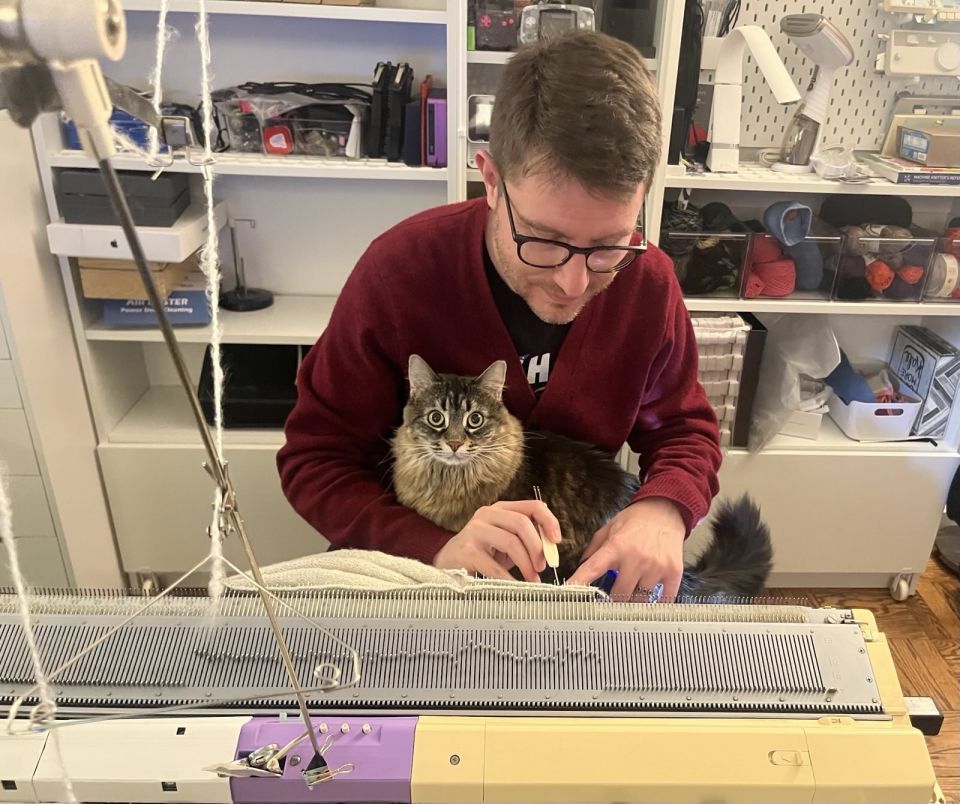
GopherCon 2026 Early tickets until Jan 31! Get them while they last!Go 1.26 coming soonOfficial release notesInteractive release notes by Anton ZhiyanovInterview with Arthur VaverkoVenn.cityJob openingsArthur Vaverko on LinkedIn

We've announced 6 Moderate Security Advisories, which allow for possible remote code execution, when an attacker has access to a repository's default branch More info: https://github.com/renovatebot/renovate/discussions/40403
Welcome back to Break, a Fallthrough aftershow! In this episode, Matt gets real about how AI doomerism on social media got to him over the holidays and the mental reset that pulled him out of it. K...
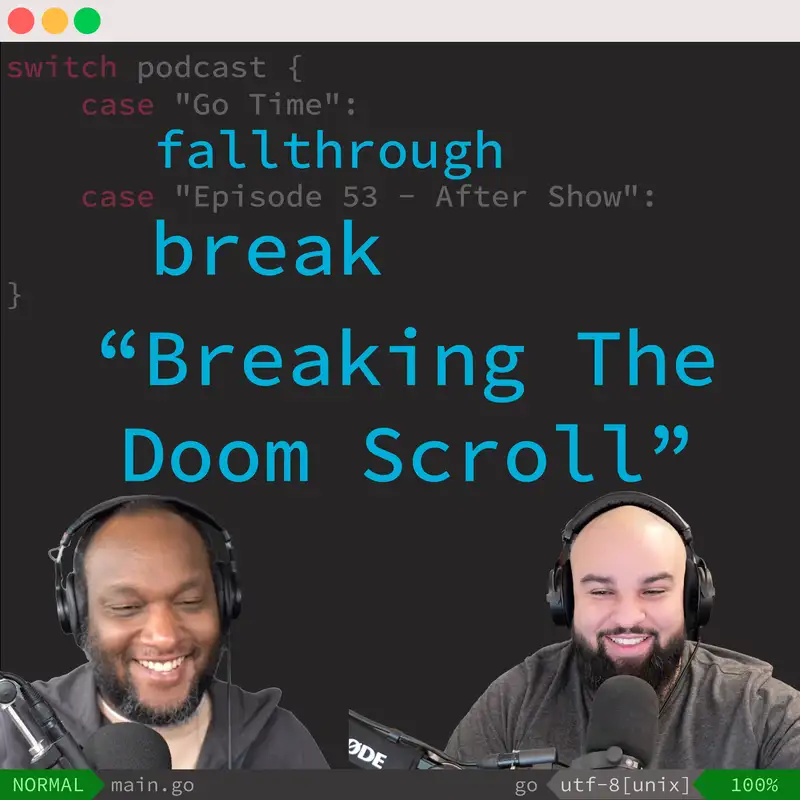
New Year, New Nuance! In this episode, Kris and Matt discuss what they're looking forward to in 2026—Matt shares the exciting news that he's becoming a dad, and the duo explore the value of growth,...
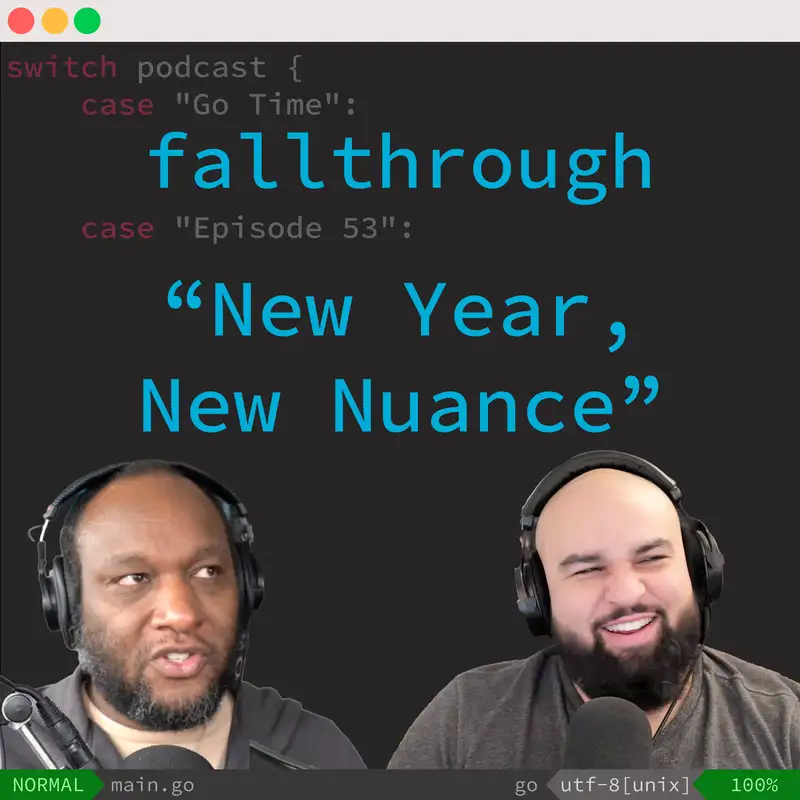
Between and I took 3090 steps.
Sometimes I wish I had fewer ideas. Execution of an idea is way more important than the quantity of ideas you have; and as someone who struggles with executive function, I get sad when I look at my unmerged branches on my blog.

The best blog post left unpublished doesn't help anyone. Well, maybe it helps the author clarify their ideas. Execution is (almost) the whole game. [contains quote post or other embedded content]